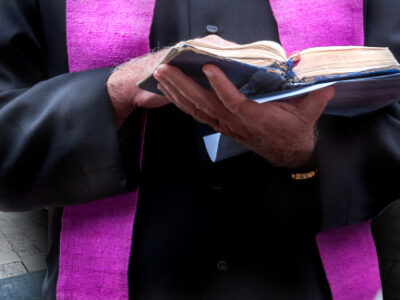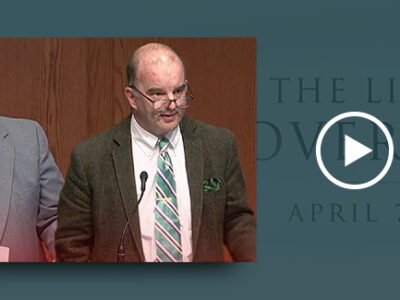It strikes me that fiction plays a major role in our annual Christmastime celebrations. Our little children hear far more about Santa Claus, Rudolph the red-nosed reindeer, and other fictitious characters than about the Nativity. I don’t mean that as a judgment or complaint—I remember decades ago feeling genuine excitement in anticipating Santa Claus’ midnight visit while not really comprehending the virgin part about Jesus’ birth in the stable. It’s just easier for a kid to grasp the reality of presents appearing under a Christmas tree than to understand how the birth of one unique infant can transform our lives and make all the difference in the world.
It isn’t just the kids, though, who indulge in the diversions of fiction at Christmastime. A few years ago, I wrote about my five favorite Christmas movies. Indeed, every year I watch one or two of them. They all capture the Christmas spirit one way or another, and so touch me with their poignant messages of redemption, hope, or joy. And yet I wonder: Does fiction eclipse the truth in our adult observances of Christmas? Could it be that we have subtly slipped into the belief that truth cannot possibly be as good and perfect as fiction?
The human mind is inherently skeptical of, if not resistant to, the wonders of divinity. The human intellect mocks us by arguing that good triumphs only in fiction, not in reality. I recall years ago spotting an attractive title in a bookstore: “Love Conquers All.” Immediately, I went over to browse the book, hoping to find an encouraging, uplifting message. Imagine my rueful chagrin when I realized that I was in the “Fiction” section of the store.
In real life, though, love does conquer all—more specifically, the love of God, who “so loved the world, that he gave his only begotten Son, that whosoever believeth in him should not perish, but have everlasting life.” (John 3:16—the ubiquitous Bible verse displayed at so many live sporting events over the years.) This, of course, is what Christmas is really all about. All the other stuff—the trees, decorations, feasts, parties, Christmas cards, gift-giving, etc.—can be wonderful expressions of jollity, festivity, and, yes, love for each other, but too often, what gets shorted in all this happy hustle and bustle is the wondrous, world-changing event that started it all: The birth of Jesus of Nazareth to the Virgin Mary in Bethlehem a little over two thousand years ago.
Acknowledging, contemplating, and giving thanks for this greatest of gifts is the highest celebration of Christmas. In the privacy of thought and the closet of prayer, we fall to our knees in awe of the virgin birth, that watershed event that showed poor, suffering, doubtful humanity that there is a higher law that overrules the sometimes cruel and merciless physical laws of the universe; a higher sense of life—eternal, immortal, purely good; a heavenly kingdom of uninterruptible harmony, unopposed good, unimpeachable perfection so glorious that our human minds can’t begin to perceive it.
At Christmastime, we may ponder in awe Mary’s spiritual devotion and God’s purpose for her in setting aside the physical laws of generation in giving birth to the Son of God. We may feel the greatest admiration for Joseph who, rather than being scandalized by the potentially embarrassing circumstances, listened to and obeyed the angels’ instructions, thereby protecting the infant Jesus from those who sought to destroy him.
We aren’t at the same exalted level as Mary and Joseph, but perhaps we won’t be presumptuous this Christmas season if we seek to emulate the meek receptivity of the shepherds (Luke 2: 8-20). When I started this article, I didn’t intend to plug one of my own books, but the shepherds who came in from the fields to see Jesus in the manger on the night of his birth were the subject of one of the 45 chapters in my book, “Famous But Nameless: Lessons and Inspiration from the Bible’s Anonymous Characters.” As I wrote there, the shepherds had a choice: Attend to their customary responsibilities of tending their flock or take time to pay homage to the Savior of the world. We know what choice they made. Had they chosen “business as usual,” Luke never would have mentioned them.
Here’s wishing each of you a shepherd-like moment of spiritual light and joy as well as a very Merry Christmas wherever you are.




